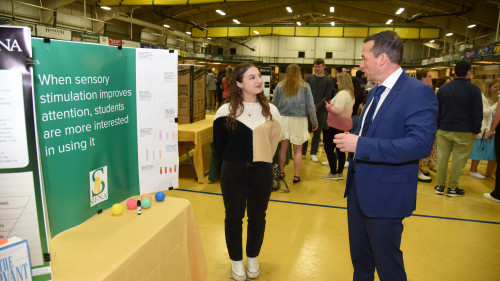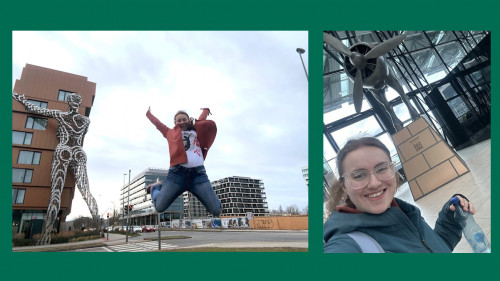
As she observed artifacts in the New York State Museum’s Shaker collection, Batesville, IN social studies teacher Jennifer Bornemann saw firsthand how the Shakers continue to impact everyday American life.“It was great to see some of the things that the Shakers invented. The clothes pin, the circular saw, some of their flat brooms,” said Bornemann.
“They at first spurned the world, but later on, they became the masters of the entrepreneurial system of the 19th century,” said Greenville, SC High School History Teacher Rusty Godfrey. “They were good capitalists. I mean, they had the seed business, the extract business, the fancy goods, the women’s bonnets.”
That’s more than Godfrey knew about the Shaker culture before he participated in this National Endowment for the Humanities Landmarks of American History and Culture Workshop for School Teachers titled, “Heaven on Earth: Shakers, Religious Revival and Social Reform in America.”
"The standard, run of the mill history textbook lumps it in this post-Jacksonian chapter that talks about reform movements in America and utopian communities,” Godfrey said.
Through an NEH grant worth more than $175,000, Siena College’s McCormick Center for the Study of the American Revolution organized two, week-long NEH Workshops, giving 80 specially selected teachers from across the country the chance to gain a deeper understanding of Shaker history and the influence of the Shaker movement on American culture.
“We fund the best of the best and this project was one,” said National Endowment for the Humanities Director of the Division of Education William Craig Rice, Ph.D. “This connects to our notion of religious tolerance and pluralism, and to our interest in people behaving differently in this country and being permitted to do so.”
“It’s a delight to have teachers from so far away come and learn something about New York and the Shakers in New York and their contributions to American history and hopefully take that stuff back to their classrooms,” said Director of the McCormick Center for the Study of the American Revolution Jennifer Dorsey, Ph.D.
During their week-long immersions into Shaker culture, Workshop participants visited historic sites, including Hancock Shaker Village, the Shaker Museum Mount Lebanon and the first Shaker site in America, the Watervliet National Historic District. They also gained access to primary source materials at the New York State Museum and Library.
“Objects have power. They’re magical when you realize that these were the exact objects associated with an individual or group of people like the Shakers,” said State Historian and New York State Museum Chief Curator Bob Weible.
Participants had access to original Shaker documents like deeds, textbooks and maps, and various Shaker artifacts.
“As far as I’m concerned, this workshop is about introducing teachers to another set of tools for teaching,” Dorsey said.
Through shared experiences and exposure to a variety of sources and sites, Dorsey’s goal has been reached. Some teachers are planning to use the Shakers as a case study on community development. Even Bethlehem, NY English teacher Jack Rightmyer, who grew up and has taught with the Shaker sites in his backyard, plans to weave the Shaker culture into his curriculum.
“I would like to look at their poetry and their rhyme and the way that their meter was,” said Rightmyer. “I think that would be an interesting way to connect the Shakers with my students.”
While they’re tasked with educating children of all ages, participants in the McCormick Center’s NEH Workshop are proof that, even for teachers, Siena College provides the education of a lifetime.

